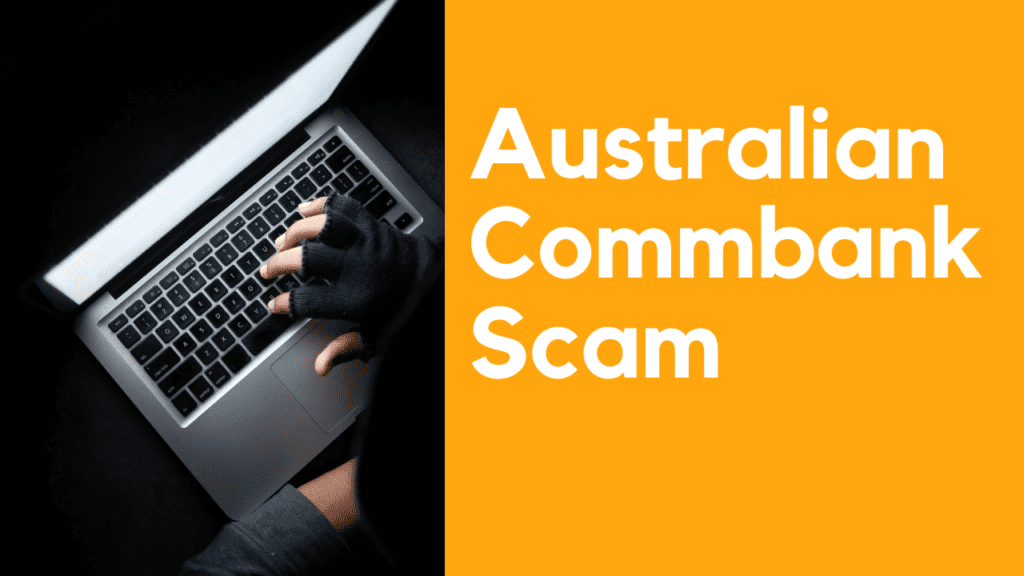Customers of CommBank have been advised to be wary of fraudsters after Wednesday’s massive outage.
On Wednesday afternoon, customers of Australia’s largest bank reported being unable to access their NetBank or CommBank accounts. By 11:30 p.m., the operational issue had been resolved.

Australian Commbank Scam Explained
According to two bank tweets, consumers should be vigilant for fraud once services restart. Scammers often prey on delayed clients.
“If you get a strange communication, do not click on any links and contact us immediately at 13 2221 or hoax@cba.com.au,” the bank said.
According to another bank tweet, consumers should “be cautious of scams and fraud.”
“Please keep in mind that we will never seek information about your PIN, Netcode SMS, or password.”
A CommBank representative said in a statement that the bank’s first goal is to keep clients’ information safe.
“We invest in cutting-edge fraud prevention and detection technologies in order to identify odd behaviour. Additionally, we collaborate with law enforcement and other financial institutions to exchange information and mitigate risks to the Australian public “They said.
“We are always concerned when we hear of consumer scams, and despite authorities’ dedication and best efforts, such schemes continue to exist, and customers are duped into transferring money to criminals.”
Scams are a problem that impact the whole business, and we do everything possible to recoup any funds paid to these con artists as soon as we become aware of the payment. Customers who believe they have been defrauded should immediately notify us at 13 2221.”
Get in touch with our affiliated Cryptocurrency Forensic Specialists at CNC Intelligence for free by filling out the form below.
This is not the first time scam artists have taken advantage of a bank outage.
CommBank customers were once again targeted in 2019, when the bank placed $50 into the accounts of customers who were unable to access their funds over the weekend.
The bank was compelled to issue a statement informing clients that they would not be required to pay the funds but that they would be automatically deposited into their accounts.
Additionally, the bank sent a warning on Tuesday regarding a phishing email posing as a CommBank email. This email notifies targets that critical security information has been stolen from their account.
Customers are advised not to respond to the sender, click on any links, or give any personal information, since this is a fraud.
Scammers are growing more prevalent in Australia, with crooks projected to defraud Australians of almost $108 million by 2021. This implies that we are on pace to lose more money this year than we did last year, when we lost $176 million.
What to Watch Out For?
- Bear in mind that no respectable supplier would ever ask you through text message or email to confirm, update, or reveal personal or financial information. You may minimise your risk of getting scammed by paying attention to texts or emails that: Are they incorrect? Scammers may use deceptively similar email addresses and communications that seem and feel official in order to fool you into believing they are communicating with an authority.
- Are there any grammatical or spelling errors?
- You will be prompted to verify, amend, or enter personal or financial information.
- Include an enticing call to action, such as unlocking or validating an account, or logging in and paying a traffic ticket. They may include potentially dangerous malware that infects your computer and gradually steals data.
How do you determine the authenticity of a message?
- It is prudent to exercise caution when approached by an unknown third party. Prior to replying, contact the organisation directly at the phone number shown on their website.
- Before clicking a link, hover your mouse over it to see the destination URL. On a smartphone, you may examine a link by pressing and holding it. Examine these URLs carefully, since they are often constructed to seem to be genuine.
- Any communication from a foreign country should be treated with caution, particularly if money is requested or you are informed that you have won a reward.
- Never open an attachment that was not requested, much more so if it is accompanied by a questionable message.
When you comment, your name, comment, and the timestamp will be public. We also store this data, which may be used for research or content creation in accordance with our Privacy Policy. By commenting, you consent to these terms.